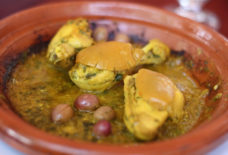Saudi Arabia Just Held the World’s Richest Horse Race
Photo: Gene Devine unsplash.comThere are some classic horse races that are held around the world each year. Races like the Kentucky Derby, Preakness Stakes, Cheltenham Festival, and the Grand National have long histories that go back over 100 years.
These races also pay out quite a bit in prize money too. The winner of the Kentucky Derby receives $1.86 million, while £1 million is shared among the top horses of the Grand National.
The Grand National is also one of the most-watched sporting events in the world, and arguably the most popular horse race held each year. Around 600 million people tune in to watch the race from around the world each year, making it one of the biggest events for bookmakers around the world. Many of whom offer bonuses and promotions to attract new customers offering Grand National tips and predictions to help them pick horses.
The World’s Richest Race
However, Saudi Arabia recently held the world’s richest horse race. It makes the prize funds of these British and American horse races look like loose change in comparison.
The Saudi Cup had a total purse of $20 million, with $10 million awarded to the winner. Not only that but unlike many other events, the race was free to enter. This makes the Saudi Cup the world’s richest horse race, comfortably beating the Dubai World Cup which has a total prize pot of $12 million.
The only race that has ever come close is the Pegasus World Cup, a race held in the United States which paid out prize money of $16 million in 2018 (up from $12 million the year before). However, it has since lowered that figure, offering $3 million in 2020.
The race took place on 29th February 2020 at the King Abdulaziz Racetrack in the country’s capital, Riyadh. It was timed to fit in between the Pegasus World Cup (which took place on 28th January) and the Dubai World Cup (scheduled to take place on 28th March).
Unlike many other prestigious and high paying races on the calendar, the Saudi Cup was held for the first time in 2020, with the organizers saying that it “heralds a new era for international horse racing”.
Horse racing is a big part of Arabian culture, and Saudi Arabia wants to tell the world about the long history of the sport in the country.
Photo: Matt Schwartz unslash.comGrabbing the World’s Attention
It certainly got the world’s attention last summer when it announced its plans to stage the race. Just days before, it had also announced plans to host a round of the Formula 1 World Championship as early as 2021.
As part of the announcement for the Saudi Cup were plans to build a turf track, the first of its kind in the country. It was decided to add the turf track to attract British and European entrants to races at the racecourse. In Saudi Arabia, as in much of America and the Middle East, flat horse racing takes place on dirt tracks, while Europe races on grass.
Three races were held on the track as part of the 2-day Saudi Cup event, each with prize pots above $1 million.
The Chairman of the Jockey Club of Saudi Arabia, Prince Bandar Bin Khalid Al Faisal commented on the plans, saying that they are “thrilled to welcome international competitors…(and) that we will be having turf racing in Riyadh for the first time”.
Track Details
The course at the King Abdulaziz Racetrack is 1,800 meters long, with a dirt surface that is based on Belmont Raceway in the United States. The legendary jockey, Frankie Dettori commented that “of all the dirt tracks I’ve ridden, it’s the one I like best…it’s a fair track”.
He commented that it was possible to win at the King Abdulaziz Racetrack regardless of your starting position and that the kickback from the dirt surface is much less than other venues. This could mean that horses used to racing on turf could also find success there.
Winner
The winner of the inaugural Saudi Cup was Maximum Security. The four-year-old horse was ridden by Luis Saez from Panama. He beat Midnight Bisou, who had been the bookmaker’s favorite, but who had to settle for second place. The winning horse crossed the line with a time of 1 minute and 50.59 seconds.
Check out Arab America’s Blog here!



